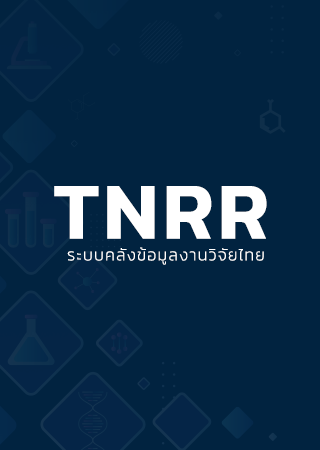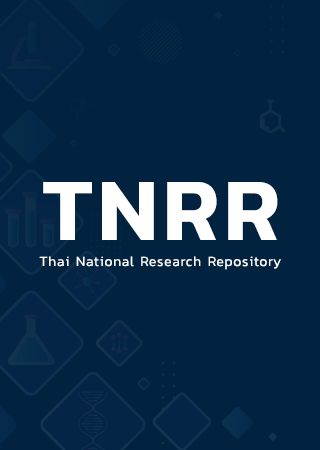Description
การวิจัยนี้มีวัตถุประสงค์เพื่อเป็นการศึกษาเพื่อศึกษารูปแบบและแนวทางการเตรียมความพร้อมของครอบครัวและชุมชนในการรับคนไร้ที่พึ่งกลับสู่ชุมชน โดยการดำเนินงานของสถานคุ้มครองคนไร้ที่พึ่ง องค์กรปกครองส่วนท้องถิ่น ชุมชนและครอบครัว และเพื่อดำเนินการเสริมสร้างกลไกกระบวนการทำงานร่วมกันของสถานคุ้มครองคนไร้ที่พึ่ง องค์กรปกครองส่วนท้องถิ่น ชุมชนและครอบครัวในการเตรียมความพร้อมของครอบครัวและชุมชนในการรับคนไร้ที่พึ่งกลับสู่ชุมชนใช้ระเบียบวิธีการศึกษาวิจัยเชิงประยุกต์ ผลการศึกษาพบว่า สถานการณ์ปัญหาคนไร้ที่พึ่งในปัจจุบัน เกิดจากปัญหาสภาพแวดล้อมทางเศรษฐกิจและสังคม ระบบบริการจากภาครัฐ และเกิดจากตัวคนไร้ที่พึ่งเอง เมื่อเข้าสู่รัฐสวัสดิการโดยมีสถานคุ้มครองคนไร้ที่พึ่งให้การคุ้มครอง บำบัด ดูแลจนสามารถกลับสู่ครอบครัวและชุมชนได้ จึงมีการสร้างแนวทางการเตรียมความพร้อมของครอบครัว ชุมชน หน่วยงานที่เกี่ยวข้องก่อนการส่งคืน ได้แก่ การยกระดับคุณภาพของสัมพันธภาพ ปรับเปลี่ยนทัศนคติ ลดมายาคติ ส่งเสริมการมีส่วนร่วมของเครือข่ายทางสังคม เสริมพลังครอบครัวและชุมชนในการร่วมดูแลและแก้ไขปัญหาคนไร้ที่พึ่ง มีรูปแบบการจัดการปัญหาคนไร้ที่พึ่งที่เน้นบริบทสังคมและวัฒนธรรมชุมชน มีการอาศัยทุนทางสังคม กลุ่มอาสาสมัคร/จิตอาสาในการส่งเสริมการอยู่ร่วมกันกับคนไร้ที่พึ่ง รวมถึงใช้ทรัพยากรและศักยภาพของหน่วยงานในการจัดการปัญหาคนไร้ที่พึ่ง ข้อเสนอแนะ หน่วยงานที่เกี่ยวข้องควรลงพื้นที่เพื่อส่งเสริมกระบวนการเรียนรู้ สร้างความเข้าใจ และเตรียมความพร้อมให้แก่ครอบครัวและชุมชนก่อนการส่งคืนคนไร้ที่พึ่งสู่ชุมชน โดยชุมชนและหน่วยงานในพื้นที่ร่วมหนุนเสริมให้คนไร้ที่พึ่ง ครอบครัวและชุมชน สามารถอยู่ด้วยกันอย่างมีความสุข พร้อมส่งเสริมด้านอาชีพและรายได้เพื่อยกระดับการดำรงชีวิตของครอบครัวที่มีคนไร้ที่พึ่งอยู่ในการดูแล อีกทั้ง สร้างแนวทางการคุ้มครองคนไร้ที่พึ่งเชิงกระบวนระบบโดยพัฒนาให้เกิดเครือข่ายการคุ้มครองคนไร้ที่พึ่งในระดับท้องถิ่น เพื่อคุ้มครองพิทักษ์สิทธิ ส่งเสริมศักยภาพและพัฒนาคุณภาพชีวิต อันเป็นทั้งการป้องกันและตัดวงจรการเกิดคนไร้ที่พึ่งซ้ำ พร้อมกับพัฒนากลไกการทำงานที่ผู้เกี่ยวข้องจะต้องมาร่วมออกแบบการทำงานร่วมกัน ตลอดจนวางแผนการทำงานเพื่อการคุ้มครองคนไร้ที่พึ่งร่วมกัน<br><br> There are two main objectives of this research project: first, to discover and establish the readiness for the return home of the homeless clients as well as their families and communities. Second, to strengthen and empower the interactive interdisciplinary mechanism for the Home for the Destitute, the local administrative organizations, local communities and homeless clients’ families. The study found that scenarios of the homeless caused by current economic, environmental and social problems, the accessible ability to social welfare services and the homeless clients themselves. The Home for the destitute provide those social protections, therapy and care treatment in order to make the return home of the clients possible. Thus, the guidelines of preparation for readiness of homeless clients’ families, local communities and related agencies are necessary, such as enhancing the quality of social and familial relationship, revitalizing social networks by reducing the myths of the homeless and empowering the family and community potential for taking care of their responsible clients. There are patterns to manage the problem of homeless clients that focused on the social and cultural context of the community and also have a group of volunteers to promote coexistence with homeless clients, including the resources and capacity of the authorities to deal with problems of homeless clients. Suggestions of the study are as following. The relevant authorities should promote and support the families and local communities for preparing their readiness before the return of homeless clients. To prevent and break the vulnerable cycle of the homeless, the programs and plans that should have done are as following: promoting the occupation to make enough income, establishing the protection guidelines for taking care of the homeless clients, empowering local networks to improve quality of life and developing the effective mechanism as well as planning for homeless clients’ protection by those involved.
Date of Publication :
03/2023
Publisher :
สำนักงานปลัดกระทรวงการพัฒนาสังคมและความมั่นคงของมนุษย์
Category :
รายงานการวิจัย
Total page :
77012 pages
People Who Read This Also Read


